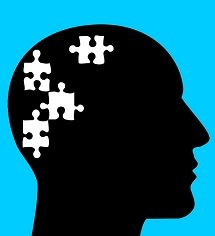 Researchers at the UK Dementia Research Institute (DRI) have developed a new form of deep brain stimulation (DBS) that does not require surgery and could provide an alternative treatment option for brain diseases like Alzheimer’s.
Researchers at the UK Dementia Research Institute (DRI) have developed a new form of deep brain stimulation (DBS) that does not require surgery and could provide an alternative treatment option for brain diseases like Alzheimer’s.
The technology—based on temporal interference (TI), whereby differing frequencies of electrical field are delivered through electrodes placed on the head—has been successfully trialled with 20 healthy volunteers for the first time by Nir Grossman (Imperial College London, UK) and Ines Violante (University of Surrey, Guildford, UK), and the team at the UK DRI.
This new UK DRI-funded research, published recently in the journal Nature Neuroscience, has shown that the TI technology was able to focally stimulate the hippocampus and improve memory function in healthy adults.
Scientists hope this novel DBS approach could soon be used to improve symptoms of memory loss in Alzheimer’s patients, without requiring invasive brain surgery, and have begun trialling the technique in people experiencing the early stages of the disease.
The technology was initially described by the team at Imperial College London in 2017—and shown to work, in principle, in mice. And now, for the first time, this more recent study has indicated that TI is effective at stimulating deep regions within the human brain.
In the study, researchers first used post-mortem brain measurements to validate that the TI electric fields can be remotely focused in the hippocampus. They then applied the TI stimulation to healthy human volunteers while they were memorising pairs of faces and names—a process heavily dependent on the hippocampus. Using an imaging technique called functional magnetic resonance imaging (fMRI), they showed that the TI stimulation selectively affected the hippocampal activity evoked by the memory task. Finally, the researchers repeated the procedure for a longer period of 30 minutes to show that the stimulation leads to improved memory accuracy.
According to a UK DRI press release, this has broad applications and will allow scientists to stimulate different deep brain regions to discover their functional roles for the first time, accelerating the discovery of new therapeutic targets.
“Until now, if we wanted to electrically stimulate structures deep inside the brain, we needed to surgically implant electrodes into the brain, which of course carries risk for the patient, and can lead to complications,” said study leader Grossman. “With our new technique, we have shown, for the first time, that it is possible to remotely stimulate specific regions deep within the human brain without the need for surgery. This opens up an entirely new avenue of treatment for brain diseases like Alzheimer’s, which affect deep brain structures. We hope it will help to scale up the availability of DBS therapies by drastically reducing cost and risk.
“We are now testing whether repeated treatment with the stimulation over the course of a number of days could benefit people in the early stages of Alzheimer’s. We hope that this will restore normal brain activity in the affected areas, which could improve symptoms of memory impairment.”
The UK DRI group is now trialling this technology in people in the early stages of Alzheimer’s disease. In the clinical trial, funded by the Alzheimer’s Association and Bill Gates Foundation, participants receive multiple sessions of non-invasive TI brain stimulation to test whether it could be effective at restoring activity in affected areas of the brain and improving symptoms of memory loss.
“The ability to selectively target deep brain areas of the brain using a non-invasive approach is very exciting, as it provides a tool to investigate how the human brain operates and opens possibilities for clinical applications,” said first author Violante. “The combination of non-invasive imaging and brain stimulation will help us unravel the processes that support our cognitive functions, such as memory and learning. Knowledge of these processes and how they can be altered is essential to develop better individualised strategies to treat or delay the onset of diseases.”
This research has been published simultaneously with a second study led by researchers from École Polytechnique Fédérale de Lausanne (EPFL) in Switzerland, which independently validated the TI technology. The EPFL study saw researchers use the technology to focally stimulate a different deep brain area called the striatum and improve motor memory function in healthy volunteers.













